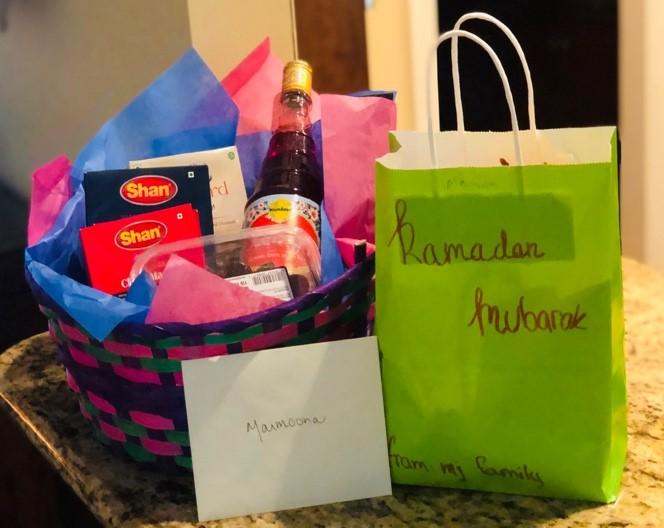How to Celebrate Ramadan: Keep It Simple Sister!
Commentary by Maimoona Harrington
Ramadan begins today for those of us in America, and we will observe our first sawm (fast). Muslims around the world will be seeking spiritual merit or reward by fasting, praying, doing good deeds and asking for repentance.
Although this should be a norm throughout the year, and in our lives per-se, the spiritual rewards multiply between 10 to 700 times more in this holy month. So, we all strive to achieve these maximum rewards. Some of these good deeds include doing charity, feeding the poor, volunteering, helping the needy or even being kind to others.
The Spiritual Benefits of Celebrating Ramadan
At home and at school I was taught that Ramadan is a month of spiritual gain and connection with our Creator Allah Subhanahu Wa Ta’ala (SWT). This phrase means “May He be praised and exalted” and is an honorable phrase to praise Allah. No food and drink from dawn to sunset is also part of this spiritual journey, so at Iftar time (the breaking of the fast every evening at sunset) is celebrated as a feast time with a lot of traditional dishes.
Ramadan changes the routine for many Muslim households. Eating and sleeping patterns change, and, in some households, even the day and night cycle changes. Some eat throughout the night, and at dawn make an intent to fast, pray and sleep or go to school or work.
The essence of this month lies in Ibadahs (worship and devotion). This can only be attained when we truly submit ourselves to our Creator, Almighty Allah SWT and purify our souls. It’s a month of personal reflection, meditation, inner peace and charity.
Ramadan Goes to Market
However, in the last few years I have noticed a big change and shift in the traditions of this holy month. Like American holidays, Ramadan has also become part of the commercial culture. Through this capital commercialism, American Muslims have added some new traditions to mark the holy month’s beginning.
Many American Muslims decorate their homes to feel the essence of this month. I would also say that COVID-19 played its part too since people could not get together to pray or eat iftars so alternate ways were created to feel connected.
Ramadan gift baskets were made and dropped at friends’ houses to share the spirit of Ramadan, mark its beginning and gain blessings in return. Major retail stores like Party City, Walmart, Hallmark, Amazon and sellers at Etsy are also selling Ramadan greeting cards, decorations and party supplies for both Ramadan and then Eid (the end of Ramadan celebrations).
The Good and the Bad from this Commercialization
These new traditions and commercialization of Ramadan are great as they are flourishing business for local Muslim communities as well as major retail stores. It also makes Muslims feel that they have attained a similar universal affirmation as Western holidays. This is not only happening in America but can be seen all over the world. Social media has also played its role. Like weddings and vacations, people now also share and post their elaborate Ramadan decorations and iftar parties.
I fear that following this commercial trend to show the significance of this holy month we might turn Ramadan into a commercial holiday like Christmas. I also decorate a small section of my home during Ramadan and then post COVID-19 started giving Ramadan gifts baskets to a very few close families. But I also realize that this month is supposed to be dedicated to spirituality and devotion.
I know it’s challenging to not get attracted by the glitter, but it is imperative to keep the balance for Ramadan’s sacredness. Keeping this balance will also help us pass the true meaning and significance of Ramadan to our future generations so they do not end up losing it in the hands of commercialism and universal affirmation.
Let’s Not Lose Sight of Ramadan’s Sacred Role in the Lives of Muslims
We should not let these new commercial traditions come in way of what we need to achieve in Ramadan on a physical, emotional and spiritual level. This month awakens our inner self, and, through fasting, we value many of the blessings that we otherwise take for granted. Some of these are the ability to get closer to Allah SWT by praying and reading the Quran, to realize the value of food by being hungry, to realize the value of water by being thirsty and to learn about the physical hardship and unity of community by standing with our congregations at night for Taraweeh prayer (a congregational non-obligatory prayer performed after the evening prayer every night during Ramadan).
I cannot stress enough that the essence of Ramadan and its objective is to gain piety, spiritual transformation, connection with our Creator Allah SWT, finding inner peace and sharing and caring through charity. Do not let this month become another month of American capitalism. This month is not about elaborative décor or grand iftar feasts but it’s a month of enrichment of our bodies and souls. My message goes out mostly to the women of the house, since they are the ones doing the most shopping, cooking and decorating.
Remember the true meaning of Ramadan and “Keep It simple Sister.”
Ramadan Mubarak.











Beautifully written and described the Holy month. The benefits, details of Ramadan are very well elaborated. She has enlightened few things which were new to me. Looking forward some new more article on this subject.
Thank you so much for your kind words.